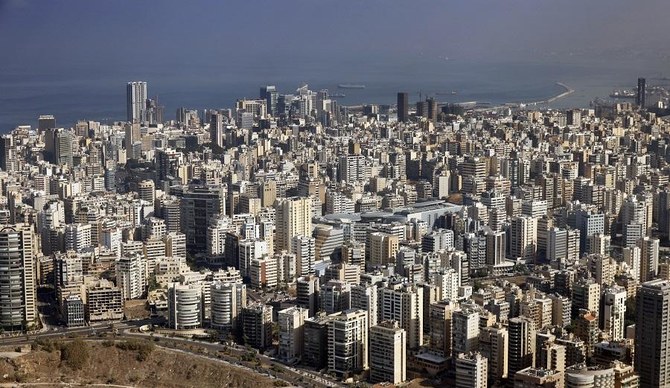BEIRUT: Influential parliamentary speaker Nabih Berri said on Monday that Lebanon would sink like the Titanic if it could not form a government.
“We will all sink, with no exceptions,” MTV television quoted him as saying at the opening of a session of parliament.
Prime minister-designate Saad Al-Hariri and President Michel Aoun have been at loggerheads over a new cabinet for months, dashing hopes of a reversal of Lebanon’s deepening financial meltdown.
The assembly was due to discuss a $200 million emergency fund to pay for fuel for Lebanon’s electricity company.
The energy ministry has said there are no funds to pay for imports beyond March.
The Zahrani power plant, one of Lebanon’s four main electricity producers, has shut down after its fuel ran out.
Lebanon could sink like Titanic, parliament speaker says
https://arab.news/w4ba2
Lebanon could sink like Titanic, parliament speaker says

- The assembly was due to discuss a $200 million emergency fund to pay for fuel for Lebanon’s electricity company
- The energy ministry has said there are no funds to pay for imports beyond March
Maersk to resume Suez Canal sailings for MECL service

- Shipping companies are weighing a return to the critical Asia-Europe trade corridor more than two years after they started rerouting vessels around Africa following Yemeni Houthi rebels’ attacks
OSLO: Shipping group Maersk will resume sailings via the Red Sea and the Suez Canal for its MECL service, connecting the Middle East and India with the US east coast, the Danish company said on Thursday.
“Maersk has decided to implement a structural return to the trans-Suez route for all MECL service sailings,” the company said in a statement, adding that this was part of a stepwise approach for its fleet.
Shipping companies are weighing a return to the critical Asia-Europe trade corridor more than two years after they started rerouting vessels around Africa following Yemeni Houthi rebels’ attacks on ships in the Red Sea in what they said was a show of solidarity with the Palestinians in Gaza.
Maersk on Monday said one of its vessels had tested the route as a ceasefire in Gaza raised hopes for normal shipping traffic.
The change for the MECL service comes into effect with a sailing departing Oman’s port of Salalah on January 26.
The Suez Canal is the fastest route linking Europe and Asia and, until the Houthi attacks, had accounted for about 10 percent of global seaborne trade, according to Clarksons Research.
The ceasefire in the Gaza conflict, in place since October last year, has renewed hope of normalizing Red Sea traffic.
The ceasefire has ended major combat in Gaza over the past three months, but both sides have accused the other of regular violations. More than 440 Palestinians and three Israeli soldiers have been killed since the truce took effect.












